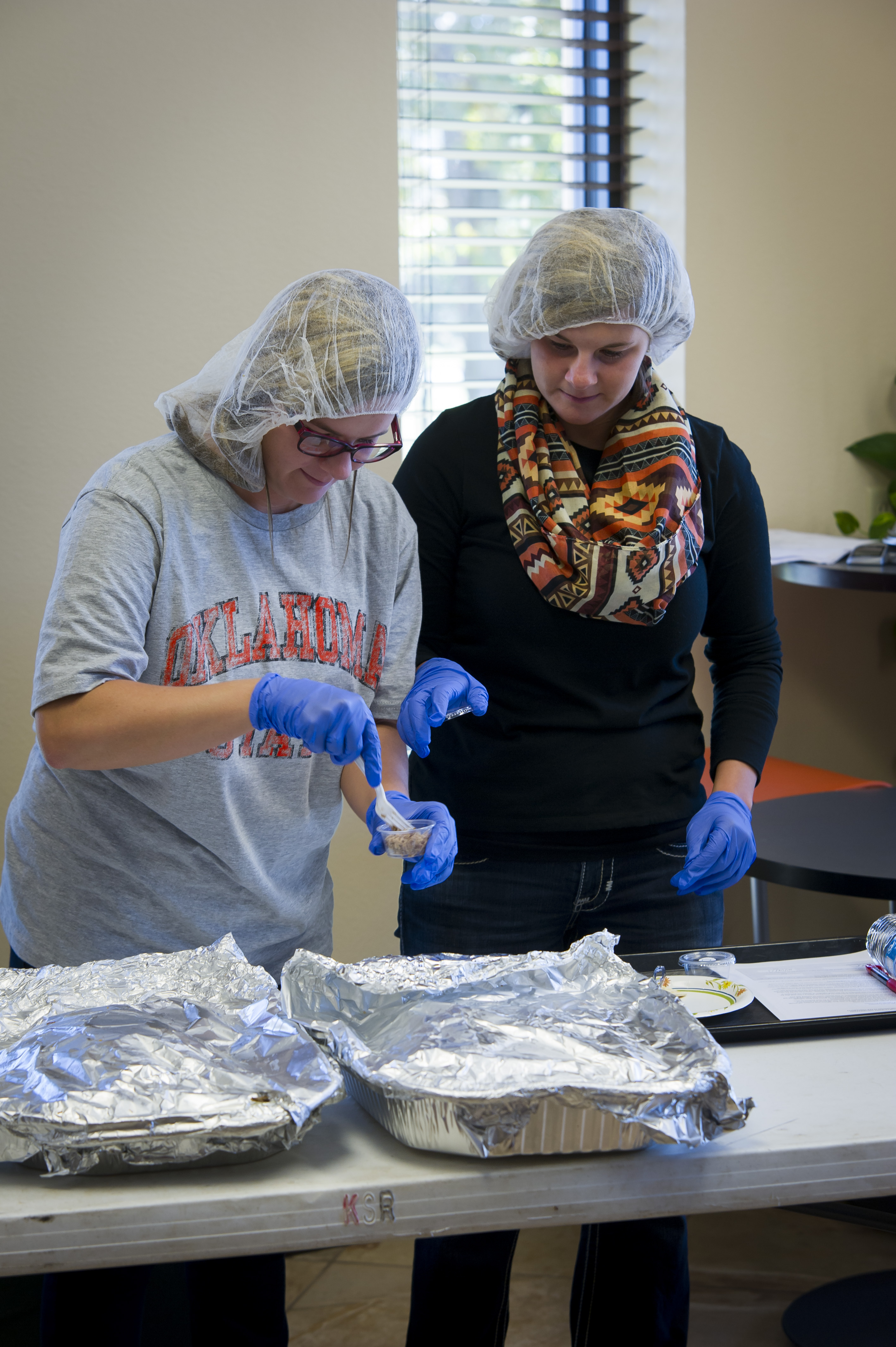(Note: any modifications or clarifications made to the syllabus will be shown in red font).
Course Description
This is a capstone course, designed to utilize much of what the student has learned in their college career to answer real-world questions regarding consumer preferences for food. The course covers three general areas ...
- The psychology and economics of how food preferences are formed, and the strategies food companies employ to satisfy these preferences better than their competitors.
- How to measure consumer preferences through focus groups, interviews, and surveys.
- How to measure consumer preferences using sensory analysis (i.e., taste–tests)
This course is cross-listed between the agricultural economics and food science programs. Agricultural economics students should enroll in AGEC 4990 (66612) while food science students should enroll in FDSC 4900 (66703). Students cannot earn credit in both AGEC and FDSC sections, as they are the same course.
Graduate students may enroll in a "G" section of FDSC 4900 for graduate credit. See instructors for additional requirements.
Prerequisites
AGEC 1113, ANSI 1124 or FDSC 1133, and STAT 2013/2023. Earned 90 or more credit hours.
Time and location
Monday and Wednesday
2:30 - 3:45 PM
408 Ag Hall
Instructors
Dr. Bailey Norwood, covering focus groups, interviews, and surveys
Professor, Agricultural Economics
426 Ag Hall
Bailey’s webpage
bailey.norwood@okstate.edu
405-334-0010
Office hours: I’m almost always in my office except 11 AM to 1 PM, so feel free to drop by anytime, or follow these directions to make an appointment.
Dr. Deborah VanOverbeke, covering sensory analysis (tasting)
Professor, Animal Science and Food Science
104D Animal Science
Dr. VanOverbeke’s webpage
deb.vanoverbeke@okstate.edu
405-744-9262
Office hours: TBA
Materials and references
The class will rely on various books, articles, videos and podcast episodes, all of which will be provided to you for free.
Grading
| Undergraduate Students |
Graduate Students |
|
| Homeworks | 20% | 15% |
| Exam 1 | 20% | 15% |
| Exam 2 | 20% | 15% |
| Exam 3 | 20% | 15% |
| Final Exam / Team Project |
20% | 15% |
| Additional Assignments | Not relevant | 25% |
Homework assignments
For the first section of the course (course sections are described in the schedule section) homeworks will consist of summaries of study materials as well as other assignment. Homeworks for other questions will also include data analysis.
Exams
The first two exams are open–book and will be based off the materials covered in class and homeworks. The format of the third exam will be determined at a later date. The final exam consists of a presentation for your class project.
Team Project (tentative, these details may change)
The team project requires you to first construct a survey to answer a specific question described in the class project section. We will then take the best questions and administer a real internet survey to 1,000 Americans. Teams must then analyze the data and present the results to Myriah Johnson from the Noble Research Institute. Note that this is a real question a major food company wants answered, so we are doing real consultant work in the class!
Graduate students
Graduate students will be asked to complete additional assignments.
Regarding things like late assignments, cheating, ...
This class only allows juniors, seniors, and graduate students, so we have high expectations of you and will treat you as an adult, the same way your boss will treat you in the workplace. We expect you to be able to manage your calendar, plan ahead, turn assignments in on time, and work well with others—and to know the difference between right and wrong. The reason this syllabus doesn’t describe penalties for late assignments is because we don’t expect late assignments from you. If you are having problems in the course (like with a team member) we expect you to not avoid the problem but to tackle it directly, and see us if we can be of help.
Syllabus attachment
This syllabus attachment applies to all OSU courses.
